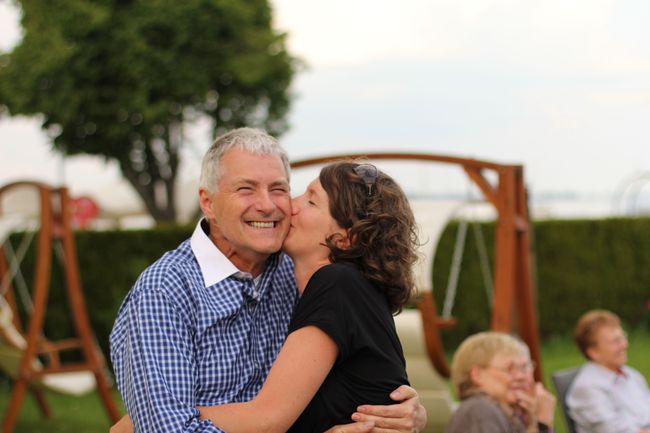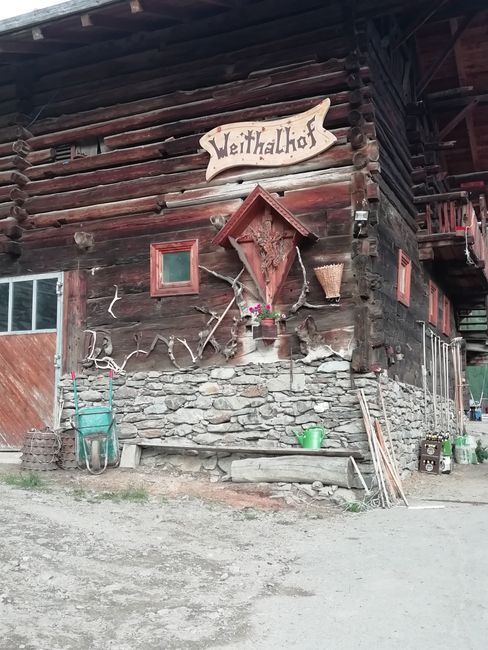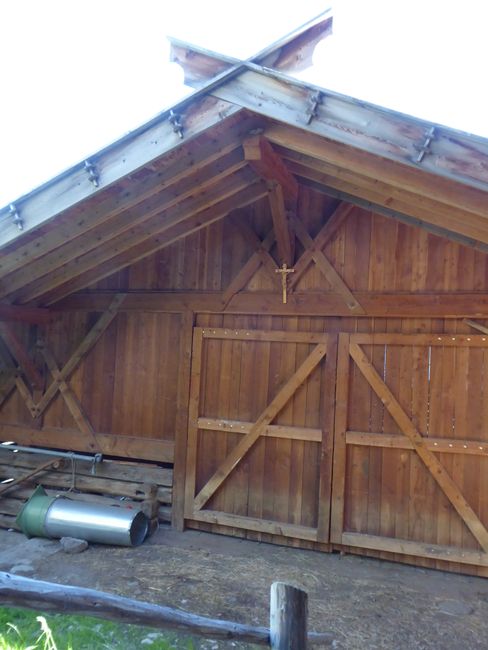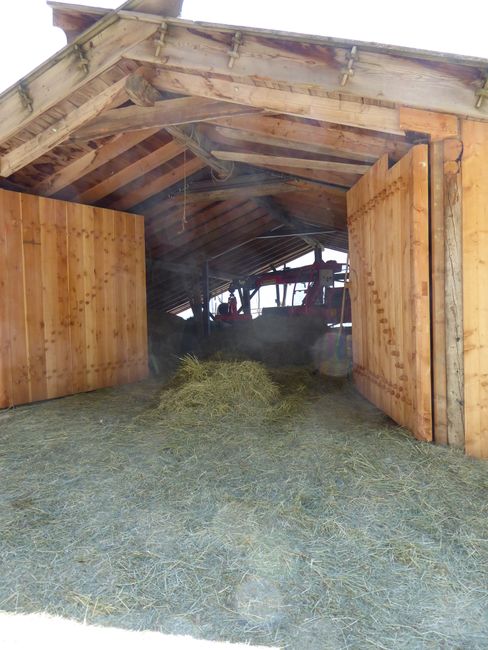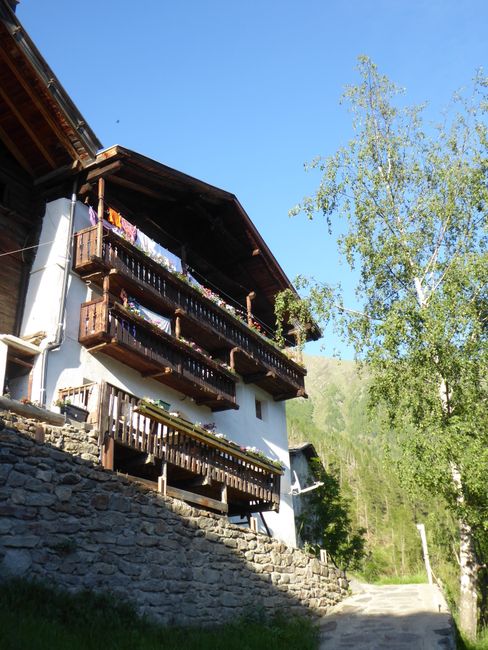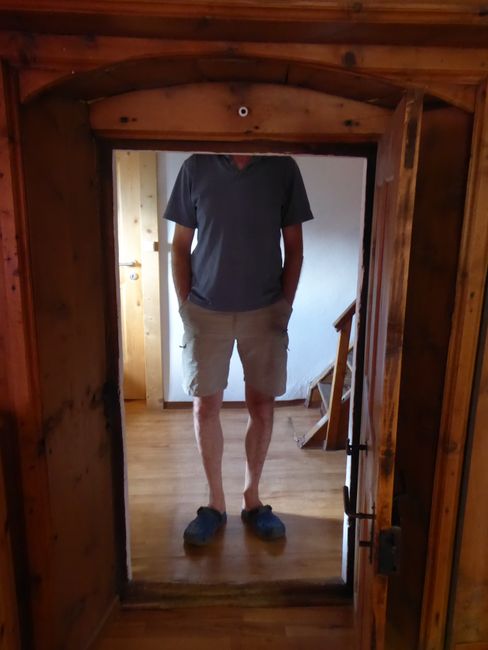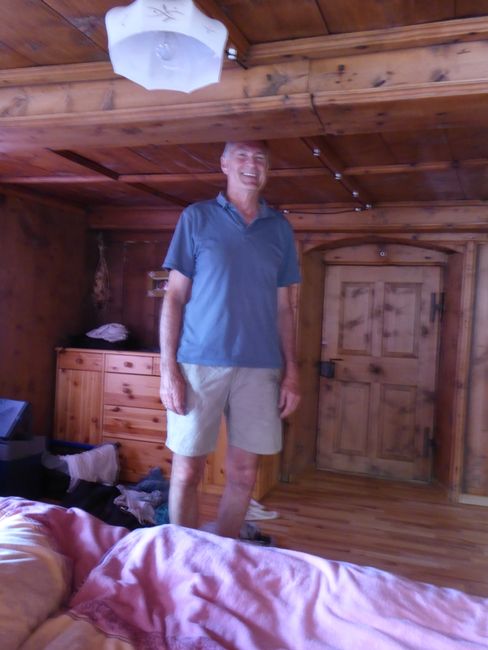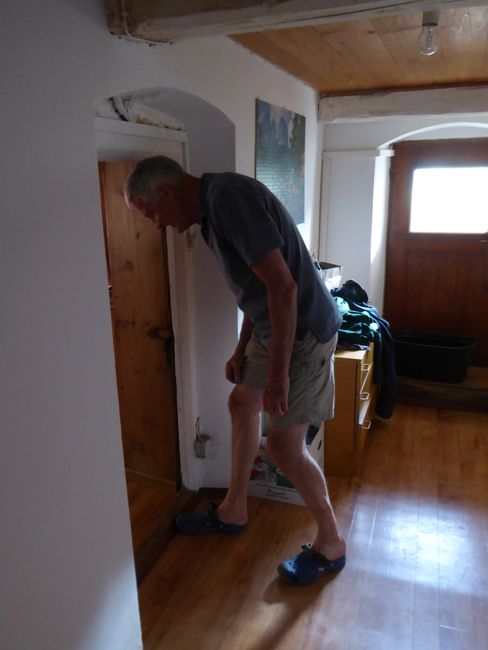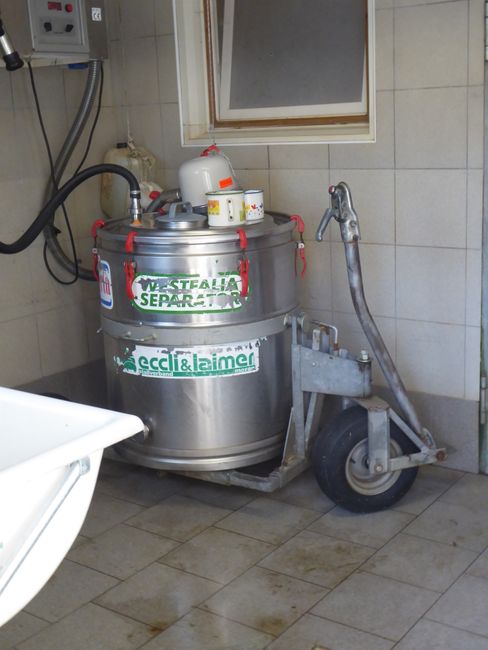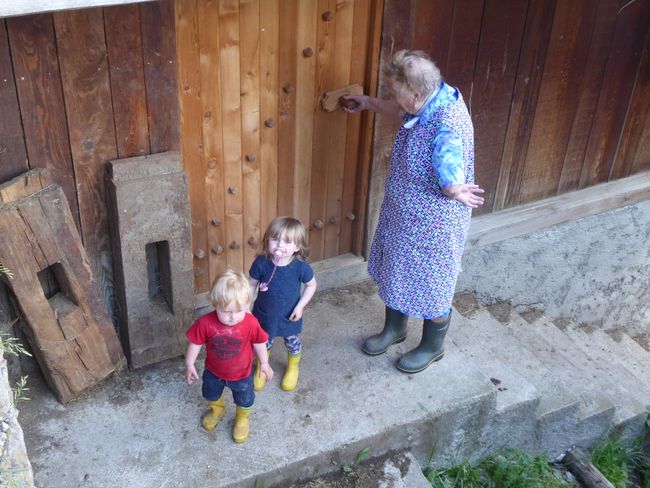On the farm
Diterbitkeun: 25.06.2019
Ngalanggan Newsletter
It's 6:27. At 6:45 am, the alarm would have gone off. Like every morning, we are already awake before it. In our carefree life in Hannover during our sabbatical year stopover, we were worried about whether we would be able to handle the early mornings. No problem, curiosity drives us out of bed and into rubber boots and work overalls. The day starts with a lot of poop! Helmut has already calculated: in 3 weeks, we will probably have transported about 15,000kg of cow dung from the cowshed to the manure pit. Magdalena and Manuel have been awake since 4:30 am. They have milked, fed, started the cable car that brings the milk can down the mountain. The smell of the cowshed on an empty stomach is quite an adjustment. And the cow dung is everywhere. On the floor, on the walls, even the ceiling, on all the devices and soon on all the clothes. It is impossible to escape it. When spreading straw, you have a cow's full... tail waved in front of your face, a trough is cleaned out to the back, and the cow starts again at the front, and if you happen to be standing in an unfavorable position... You get used to everything!
But I like the calm atmosphere in the cowshed. 17 cows, 3 pigs, 2 calves. And for the first few days, 2 little goats. "Kitz," as the South Tyrolean says, which I am allowed to feed with milk. One with a bottle, the other drinks from a little cup like a dog. Then it's breakfast time for us. A new daily rhythm. My about 5 meals a day are reduced to 3. It works too! Work session in the morning, one in the afternoon, back to the cowshed in the evening. After dinner around 8 pm, the house becomes quiet.
Our impression: the South Tyrolean mountain farmer works a lot - but calmly. There is always time for a break. It is not scheduled when and what needs to be done. The weather determines most of the activities. Mid-June is the time for haymaking and for the cows to leave the cowshed during the day. So that's our main work effort: preparing the pastures (building fences, collecting and stacking wood that crashed onto the meadows during the last storm), driving the cows up and down the mountain. Making hay can only start in the second week depending on the weather, so we still have time to tidy up things on the farm that we don't have time for during the year: storing wood, sorting away water pipes, etc. We, who are not used to physical work, are also exhausted in the evenings, have blisters, scratches on our arms and legs. I wonder how Manuel and his brother Andreas, who run the farm here, manage to stay so unharmed!
Ngalanggan Newsletter
Waleran

